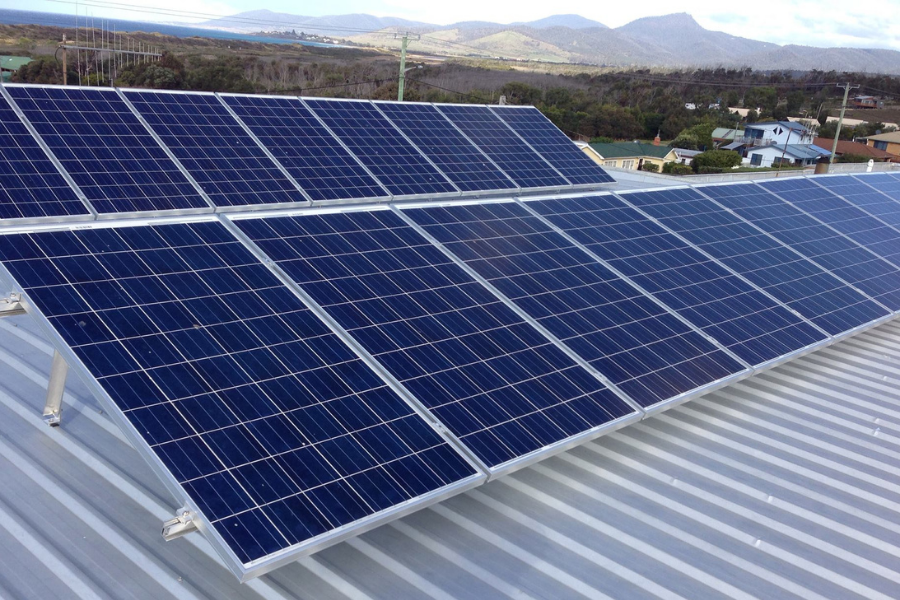As the warmer months set in, thousands of households across Australia will begin to wonder if they should switch to solar.
There are many factors that come into play when making this decision:
- the need for cheaper electricity bills
- planning to sell and wanting to add value to a home
- wanting to reduce reliance on the grid and large energy suppliers
- conscious of carbon footprint and wanting to reduce strain on the environment
- plus many other financial, environmental and personal reasons that might apply.
While these households are usually very keen to make the change to solar, as soon as they see a quote that is higher than they expected, they decide they can’t justify the costs involved.
This is largely due to misinformation in the industry. Mid-sized quality systems can cost between $7K – $10K, but cheap solar manufacturers might advertise their low quality systems for $3K – $4K which excites potential buyers.
Some will give up after this initial step while others will find another installer offering cheaper panels from a brand they’ve never heard of or that has no reviews online. This is where things start to get tricky.
Unfortunately, a cheaper solar panel deal usually isn’t something to get excited about unless it’s a deal from a large, trusted manufacturer with a good track record. A cheaper solar panel is exactly that: they are made from cheaper materials, they go through less quality assurance testing or none at all and they are a big gamble for homeowners wanting to reduce electricity costs.
As households are keen to make a change to solar, as soon as they see a quote that is higher than they expected. Here’s why cheap solar panels could end up costing you more in the long run., and here’s why.
What’s the Difference Between Cheap and Quality Solar Panels?
You’re not alone if you’ve wondered why some solar panels and inverters cost more than others. They all look the same, and they all do the same things, so why should you bother with the more expensive ones?
The solar industry (including manufacturers, dealers and installers) has come to the simple conclusion that “you get what you pay for”. Unhappy customers also know this to be true. We’ve seen countless bad experiences thanks to poor installation practices and cheap quality panels.
The most important questions to ask yourself when choosing your solar panels are:
- Does the panel manufacturer have a good track record?
- What is the manufacturer’s warranty policy on the panels?
- Is it easy to access the manufacturer warranty information or has the manufacturer made it unclear?
If you don’t know the answers to these questions after 5-10 minutes of research, chances are you’re looking at a cheap solar panel.
Cheaper quality solar panels or inverters are more likely to fail earlier. The manufacturers who produce these cheaply made panels are less likely to honour warranty agreements, especially if they suddenly go out of business right when you are looking for their help.
It Isn’t All Bad News
Of course, not all manufacturers are like this. While the industry certainly has its bad eggs, there are many manufacturers who actually care about the quality of their products, honour their warranty agreements and make sure your panels last as long as possible on your roof.
Beware of Cheap Solar
It’s easy to get dragged in by the possibility of cheaper panels, but we strongly advise you to do your research on the companies you’re looking at and go into the decision with caution. If finances are an issue, keep up to date on what’s happening in your state with solar subsidies, loans, and other payment plans that are becoming available and be ready to make your move for a quality system when the industry is favorable for you.
If you haven’t yet read the eBook “Cheap Solar – A Cautionary Tale” we highly recommend having a look today. It was produced by the ‘Crap Solar’ Facebook group with the aim of highlighting the pitfalls of cheap solar.
Here are a couple of excerpts from the document:
“Today a quality mid-size system will cost between $7,000 and $10,000. Be careful if the quote is much cheaper than that. A quality system can last for decades, a cheap system will definitely not stand the test of time.”
“So in summary, one gets what one pays for. Tier 1, 25 year output warranty are meaningless terms. Tier 1 is no reflection of build quality and it is not a reflection of the financial strength of the manufacturer. The 25 year output warranty is worthless and will never be claimed. The fine print prevents that. The Manufacturer Warranty and the strength of the manufacturer is all that counts.”
Don’t be fooled by cheap solar!
Contact Coastal Solar for any of your solar needs.


